The roseate spoonbill (Platalea ajaja) is a captivating member of the ibis and spoonbill family, Threskiornithidae, known for its gregarious nature and striking appearance. Found in both South and North America, this elegant bird is a resident breeder in various wetland habitats.
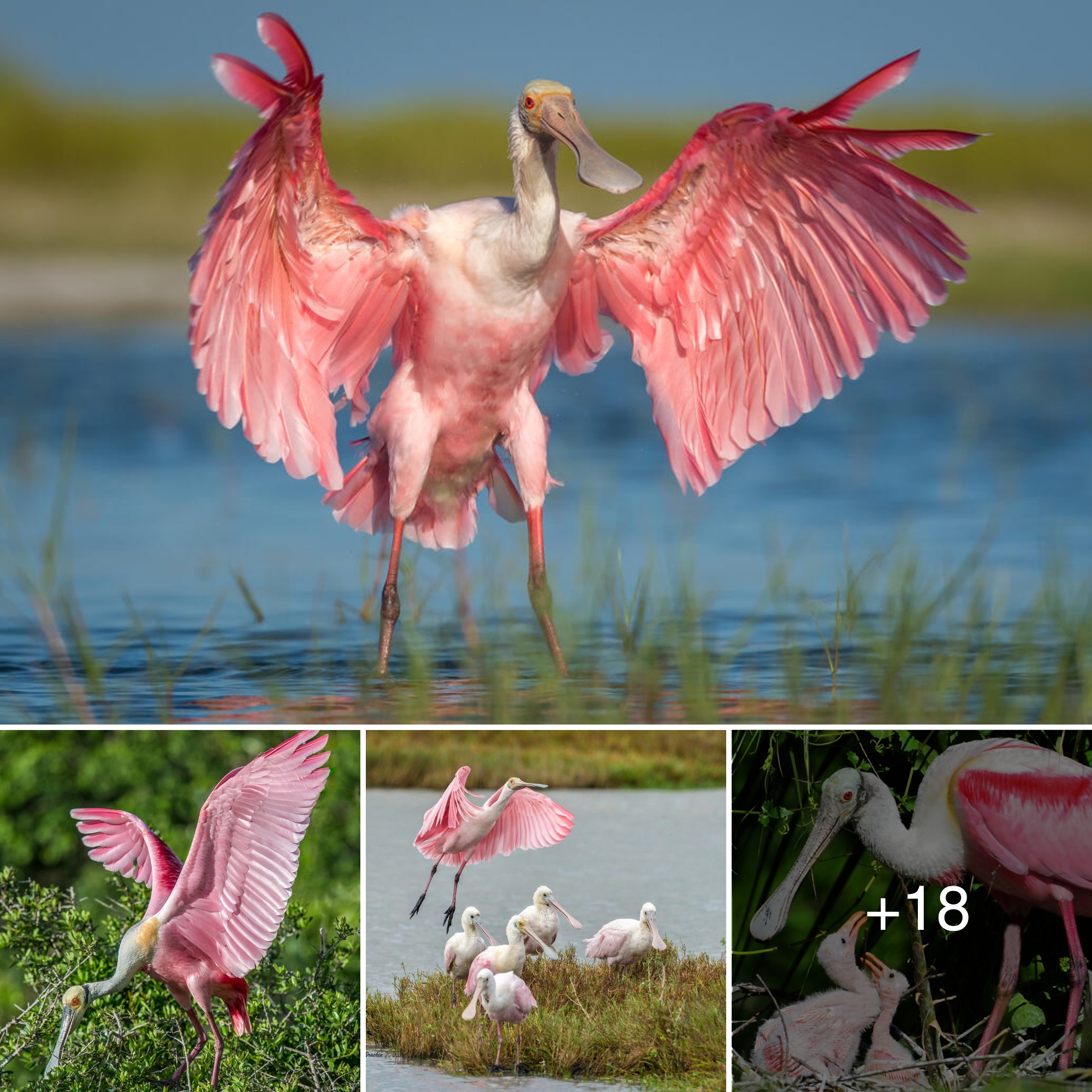
Taxonomically, the roseate spoonbill is sometimes classified in its own genus, Ajaia. Genetic studies have revealed its close relationship with the yellow-billed spoonbill, suggesting they share a common ancestry distinct from other spoonbill species. Despite taxonomic debates, its unique morphology and behavior make it a fascinating subject for ornithologists and bird enthusiasts alike.
Physically, the roseate spoonbill is a sight to behold, measuring 71–86 cm in length with an impressive wingspan of 120–133 cm. Its slender legs, elongated bill, and distinctively spoon-shaped bill set it apart from other wading birds. Adults boast a captivating pink plumage, derived from their diet rich in carotenoid pigments like canthaxanthin. During breeding season, their coloration intensifies, with a tuft of pink feathers adorning their chest.
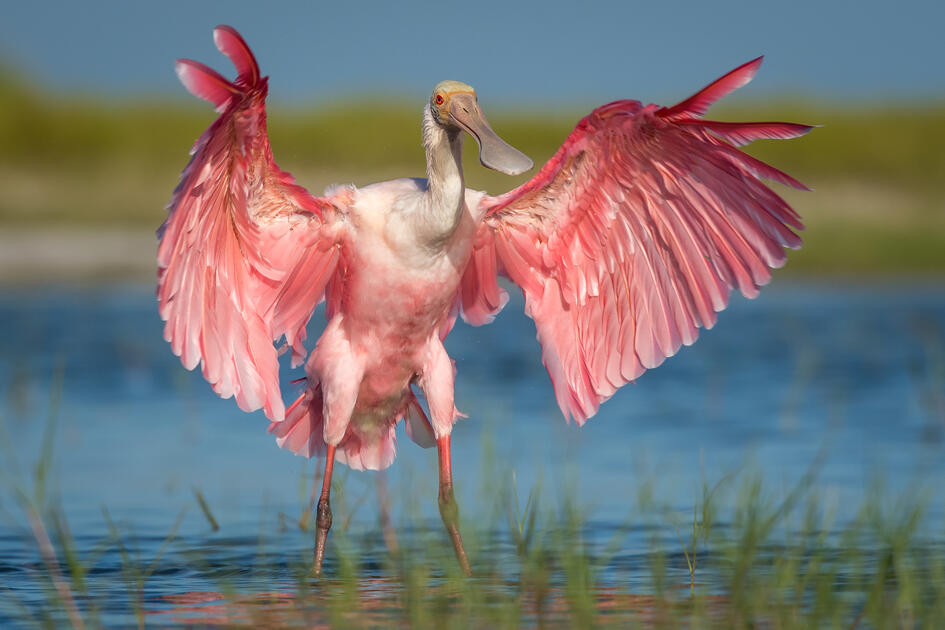
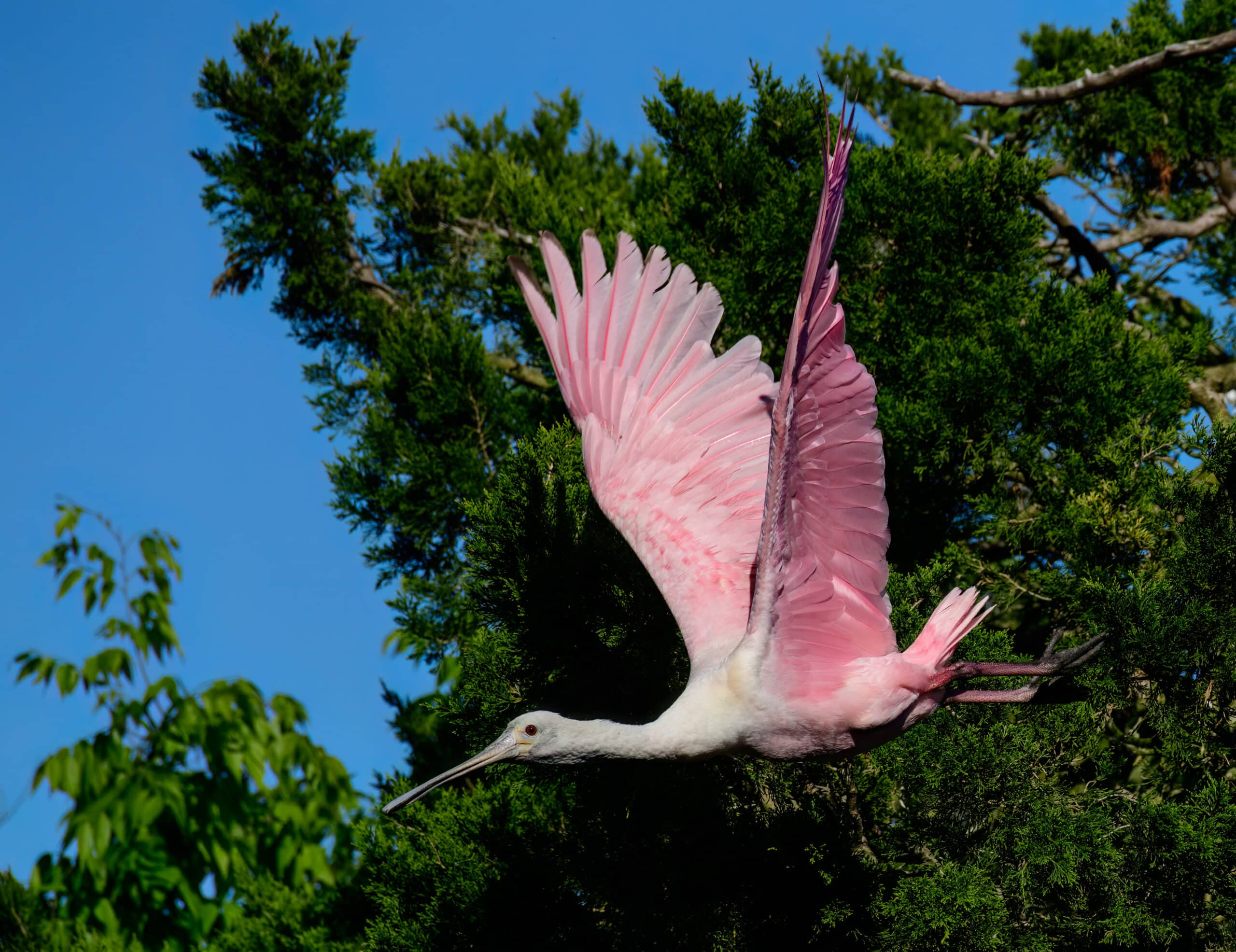
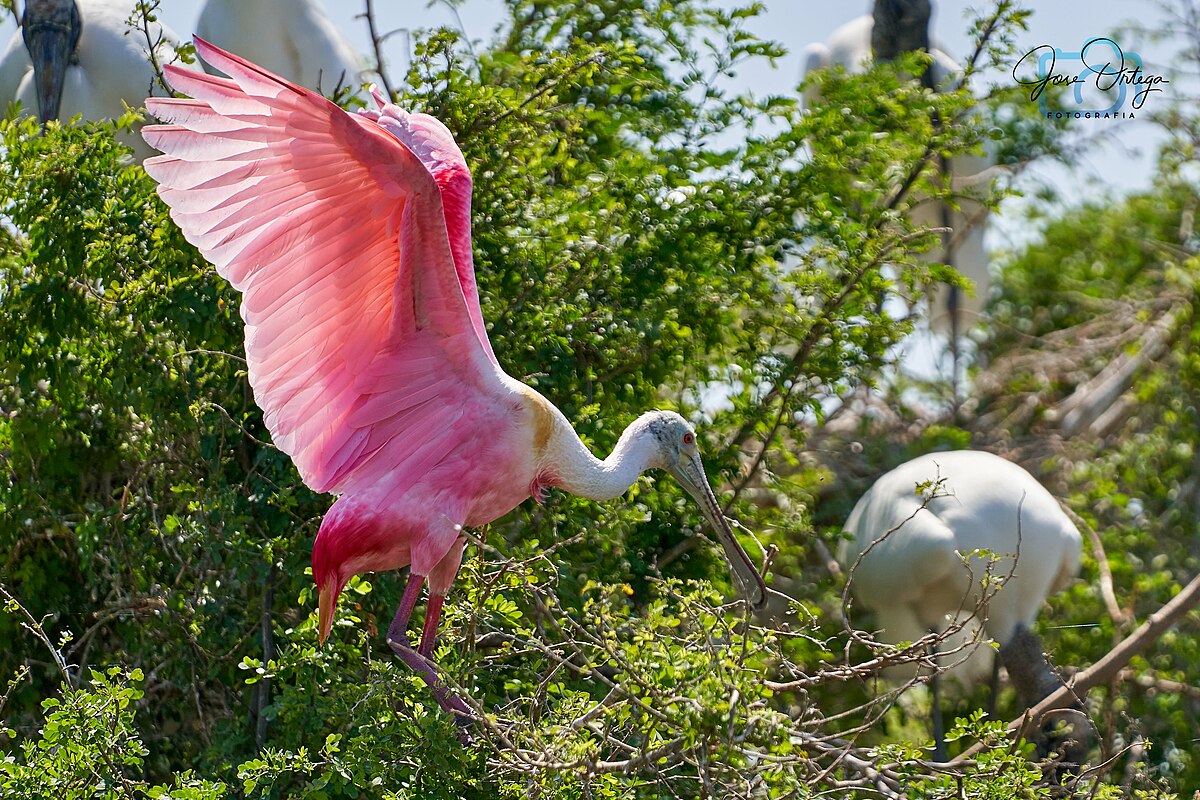
Distribution-wise, the roseate spoonbill can be found in various coastal regions of South and North America, including parts of the Caribbean, Central America, Mexico, and the Gulf Coast of the United States. Once threatened by plume hunting, conservation efforts and changing environmental conditions have enabled its range expansion in recent years. Notably, sightings outside its typical range have been reported, signaling its adaptability to diverse habitats.

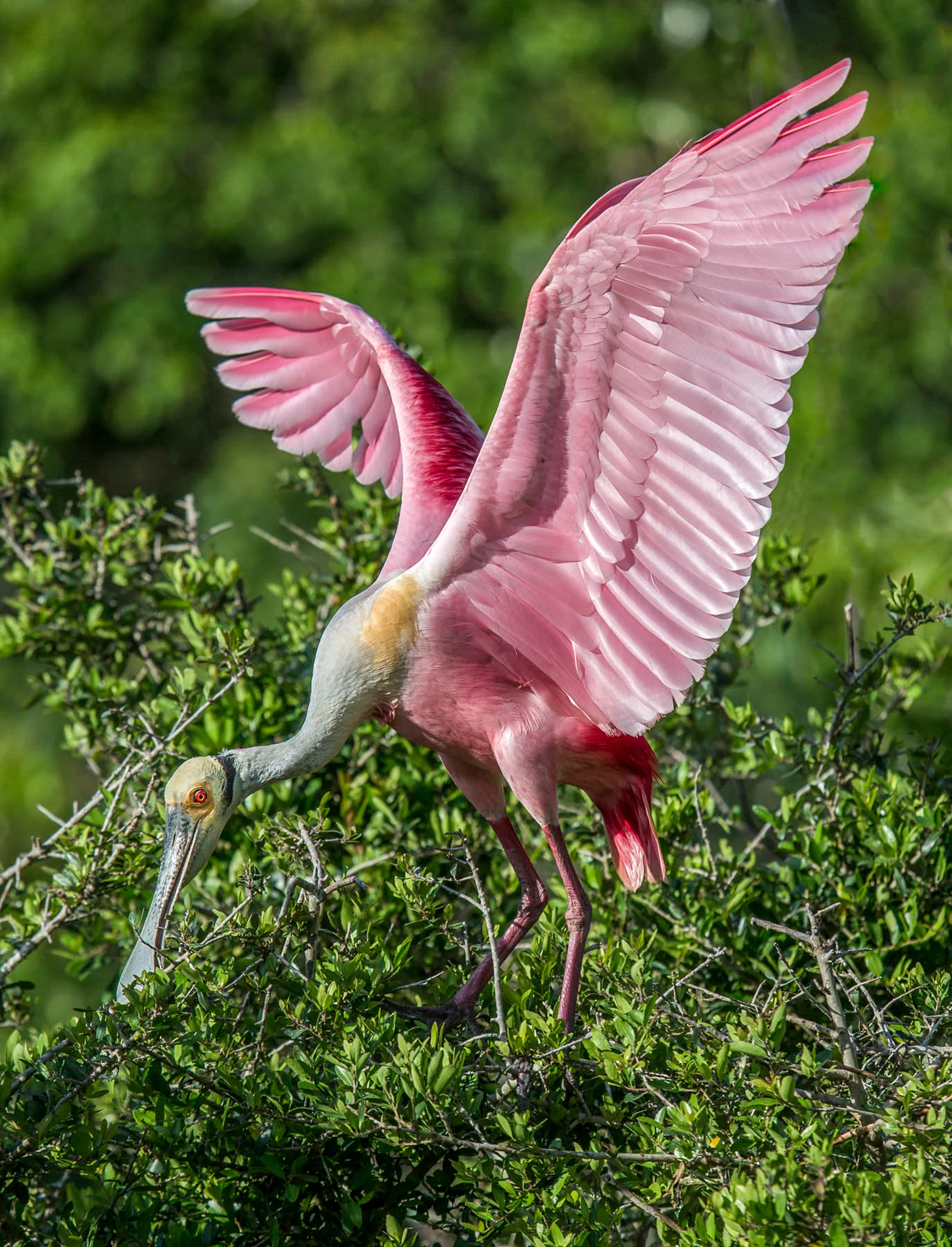
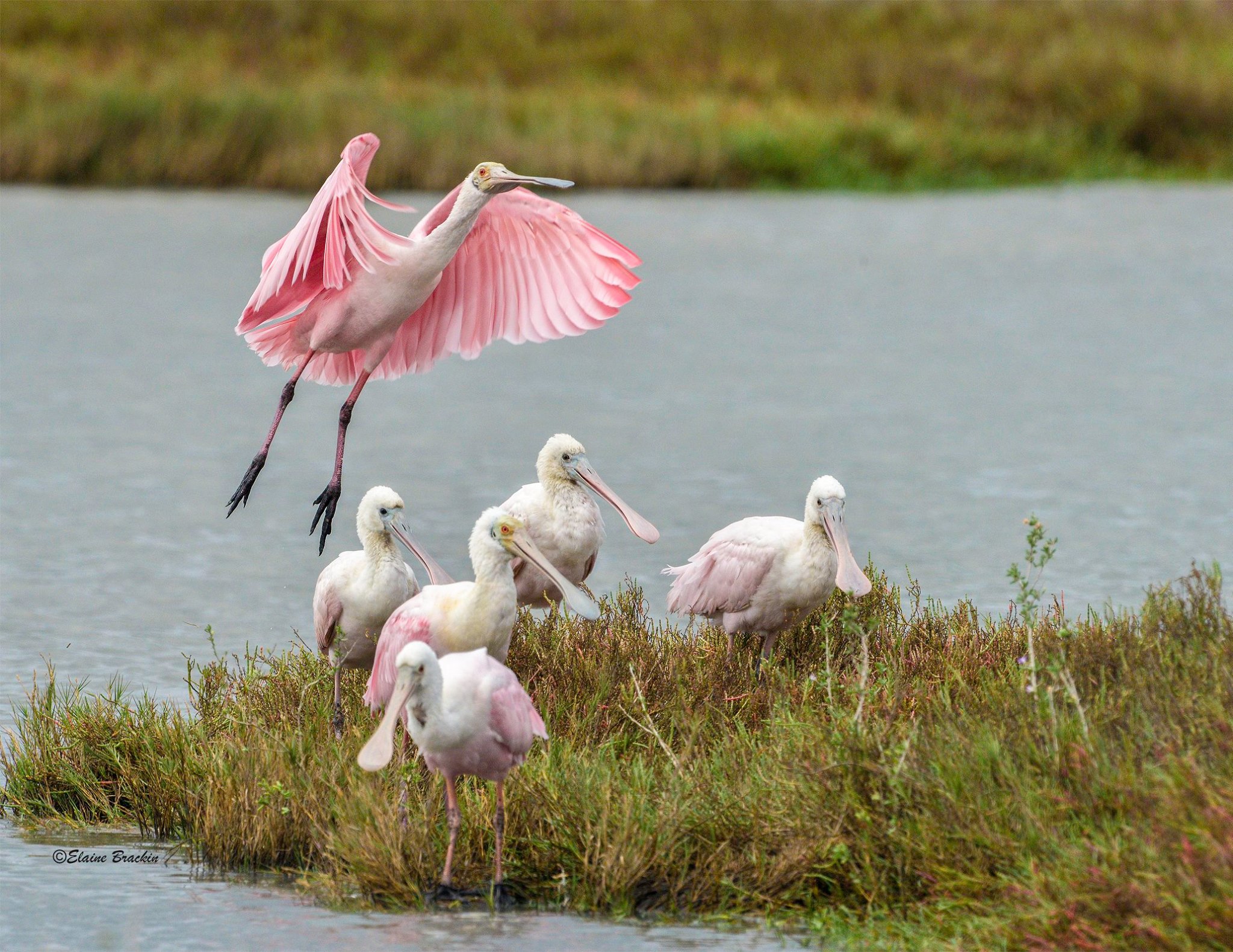
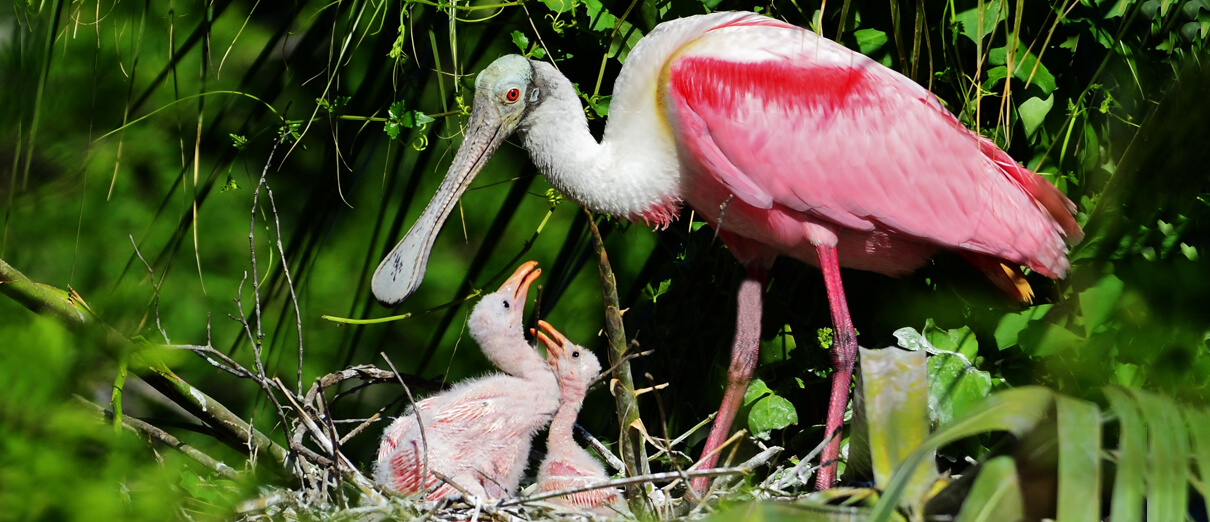
In terms of behavior, the roseate spoonbill is primarily known for its distinctive foraging technique. It wades through shallow waters, swinging its bill from side to side to sift through mud and capture crustaceans, aquatic insects, mollusks, and small fish. Often found in communal groups, it shares its foraging grounds with other wading birds, forming symbiotic relationships where its disturbаnce of sediment benefits trailing species like egrets.